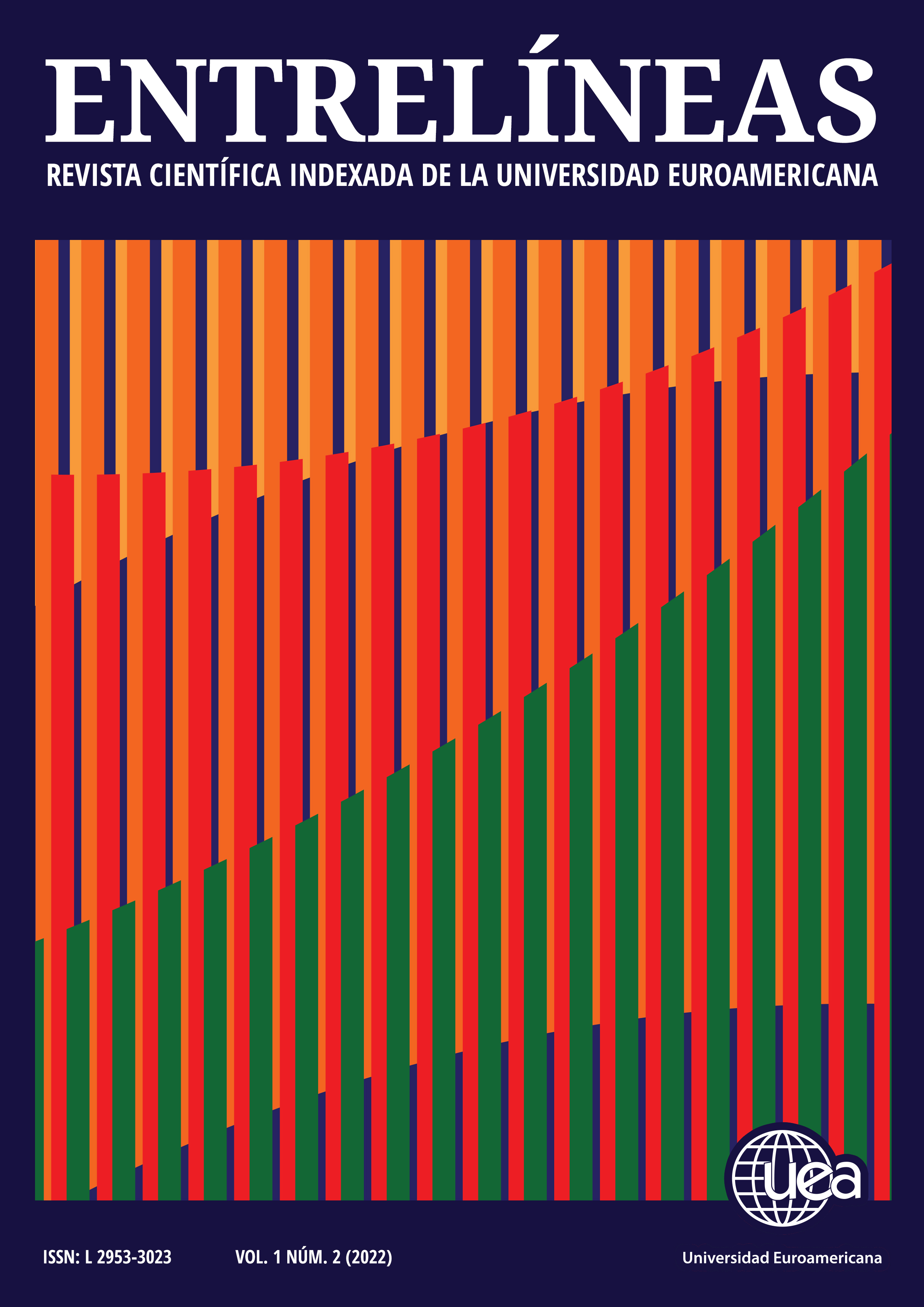An experience of pedagogical practice towards innovation in teacher training
DOI:
https://doi.org/10.56368/Entrelineas128Keywords:
Practice, pedagogy, innovationAbstract
This paper presents an analysis of innovative pedagogical practices in teacher training, as a result of a doctoral research process, with the purpose of proposing a scheme of innovative practices, for the transformation of the pedagogical experience and the research of participating teachers of the Formative Diagnostic Assessment course - ECDF of the MEN, organized by the Faculty of Educational Sciences of the Pedagogical and Technological University of Colombia - UPTC, in the years 2017 and 2019. A documentary corpus has been selected between books, articles scientific studies, research, laws, presentations, videos, theses, web pages, and national and international research reports, which account for the scientific rigor that this project deserves, from various lines of analysis and theoretical, conceptual, and experiential deepening based on the variables to develop, related to Teacher training: professional profile. Elements that are developed in pedagogical practice. Working conditions of teachers in Colombia and elements that make a practice innovative. The central aspects that are analyzed and delivered have to do with projective type research, generated through the analysis of classroom research projects, developed within pedagogical practices and classroom experience, in the sense of concluding that teachers have the potential, strength, and training to develop research projects in the classroom, as well as to propose alternatives and innovative strategies in their work, to demonstrate that pedagogical practice can become innovative.
Downloads
References
Álvarez A. (2015a). Orientaciones conceptuales y metodológicas para la formación en servicio de los maestros (VOL: III). Logo Ministerio, Logo Pedagogía Horizontal, 2015.
Álvarez A. (2015b). Subsistema de formación de educadores en servicio: lineamientos para la formación en el contexto de la evaluación docente (VOL: II). Logo Ministerio, Logo Pedagogía Horizontal.
Barrantes C. (2018). Práctica Pedagógica y Formación de Maestros. UPN – Universidad Pedagógica Nacional.
Cortés Rincón, Albenis. (2016). Prácticas innovadoras de integración educativa de TIC que posibilitan el desarrollo profesional docente. Un estudio en Instituciones de niveles básica y media de la ciudad de Bogotá (Col). [Tesis Doctoral]. Universidad Autónoma de Barcelona. https://www.tdx.cat/bitstream/handle/10803/400225/acr1de1.pdf?sequence=1
Díaz, G.; Camejo, M. (comp.) (2014) Epistemología y educación Articulaciones y convergencias. Universidad de la República de Uruguay.
Carhuancho Mendoza, Et.al, (2019). Metodología para la investigación holística. Departamento de investigación y posgrados. Universidad Internacional del Ecuador, extensión Guayaquil.
Hurtado de Barrera, J. (2007). El proyecto de Investigación. Ediciones Sypal.
Larrosa J. (2016). La experiencia y sus lenguajes, La Formación Docente entre el siglo XIX y el siglo XXI. http://aprende.colombiaaprende.edu.co/sites/all/modules/mapa/docs/curso_ECDF/UNINORTE_curso%20ECDF.pdf
Meirieu, P. (2021) Palabras para las y los docentes en formación. Dirección General de Cultura y Educación. https://youtu.be/SQclkMqUpns
Ministerio de Educación Nacional Resolución No. 2041 de 2016. (2017) https://www.mineducacion.gov.co/1759/articles-356982_recurso_1.pdf
Pérez, Ángel. (2015). ¿Qué Docente? ¿Para Qué Escuela? La Formación Del Pensamiento Práctico, En Formación Continua y desarrollo profesional docente. Ponencias del Seminario Internacional Santiago: Organización de Estados Iberoamericanos http://www.santillana.com.ve/articulos.asp?idarticulo=114
Salmi, J. (2018). Conferencia Internacional: Los Nuevos Desafíos Para la Educación Superior en el Siglo XXI. Centro Cultural Metropolitano de Convenciones de Armenia, Conferencia Internacional. Universidad de Quindío. https://youtu.be/4uIdguQXSFE
Downloads
Published
Issue
Section
License

This work is licensed under a Creative Commons Attribution-NonCommercial 4.0 International License.
You are free to:
- Share — copy and redistribute the material in any medium or format
- Adapt — remix, transform, and build upon the material
- The licensor cannot revoke these freedoms as long as you follow the license terms.
Under the following terms:
- Attribution — You must give appropriate credit , provide a link to the license, and indicate if changes were made . You may do so in any reasonable manner, but not in any way that suggests the licensor endorses you or your use.
- NonCommercial — You may not use the material for commercial purposes .
- No additional restrictions — You may not apply legal terms or technological measures that legally restrict others from doing anything the license permits.










